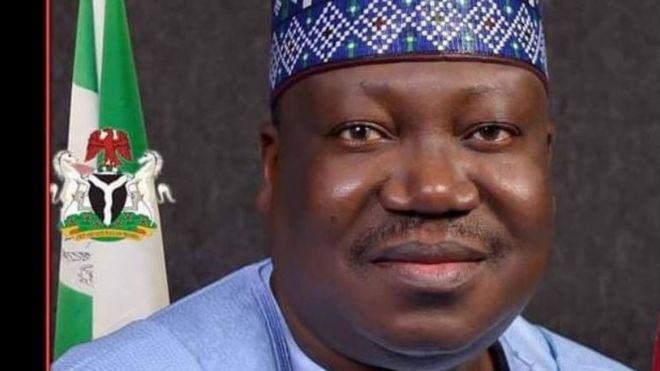
President of the Senate, Ahmad Lawan, on Wednesday said the
Senate will investigate the Petroleum Products Pricing Regulatory Agency
(PPPRA) over alleged non-remittance of N800 billion to the Federal Roads
Maintenance Agency (FERMA) for the maintenance of roads across the country.
Lawan stated this in his concluding remarks on a
bill for an Act to repeal the FERMA Act, 2002 and to establish the Federal
Roads Authority Bill, 2019.
According to the Senate president, previous efforts
by Nigeria to concession government enterprise failed as a result of systemic
corruption.
He, therefore, called for Public-Private Partnership
(PPP) in the construction of roads across the country if the government must
meet up to its responsibility of providing good roads.
“Corruption is also responsible for some of the
challenges we face on our road today.
“We recall that the privatisation of various
enterprises was made right from 1986 till date, and in most cases, the privatisation
or concessioning processes were flawed and of course, we suffer as a country.
“So, we just have to be very careful. We insist we
go on the Build-Operate-Transfer (BOT) partnership, but we have to ensure that
everything is done within the law as required so that no one takes advantage of
his position in the government to shortchange the entire people of the country,"
Lawan said.
He stated that it is his belief that Nigerians need to demand what happened to the over N800
billion that PPPRA was alleged to have collected.
He said: “I think that we will take that as a
separate issue because we need to verify and confirm, even for the sake of
allowing PPPRA to defend itself, because this is not something that we can
sweep under the carpet. N800 billion can do a lot of things for our country.”
Sponsor of the bill, Senator Gershom Bassey, in his
lead debate, said the 36,000km federal road network is by far the largest and
most valuable single public infrastructure asset owned by the Federal
Government of Nigeria.
According to the lawmaker, “There is nowhere in the
world that this expanse of road network is managed solely by the government.
“But unfortunately, over 80 percent of goods and
services are transported by road leading to tremendous pressure on our roads
since other modes of transportation like rail and water are underdeveloped, and
air transport is too expensive for most Nigerians.”
Bassey stated that while road development and
maintenance in Nigeria seem uncoordinated and vulnerable to extreme climate
events, “funding is poor and comes in an unpredictable manner making the cost
of road maintenance in Nigeria to be one of the highest in the world.”
The lawmaker stated that the bill, if passed into
law, would among other things, promote the sustainable development and
operation of the road sector and facilitate the development of competitive
markets and the promotion of enabling environment for private sector participation
in financing, maintenance and improvement of roads in Nigeria
He further disclosed that the structure envisaged
in the Federal Roads Authority Bill is a model that would yield fruit in other
climes such as India, South Africa and the United States of America.
Contributing to the debate on the bill, another
lawmaker, Senator Olubunmi Adetumbi (APC, Ekiti North), blamed the poor state
of roads across the country on the high level of impunity by relevant agencies
of government.
He wondered why the PPPRA disregarded the
provisions of the FERMA Act which makes provision for a five percent deduction
on petroleum products for road maintenance.
“Why did the concessioning of Lagos-Ibadan road
fail? Why did it fail in this environment and it worked in South Africa,
Morocco and Malaysia?
“Mr. President the truth of the matter is that
those countries are countries of rules. Why do rules fail in Nigeria,” he
queried.
He added: “The FERMA Act says five percent of petroleum
pump price should be remitted to FERMA. That law has been ignored with
impunity. Nothing happened, no consequence, and therefore, there’s no incentive
for obeying laws in our country.
“Will this bill we are talking about be obeyed, because
the preceding law is now been annulled due to lack of obedience to that law.”
No comments:
Post a Comment